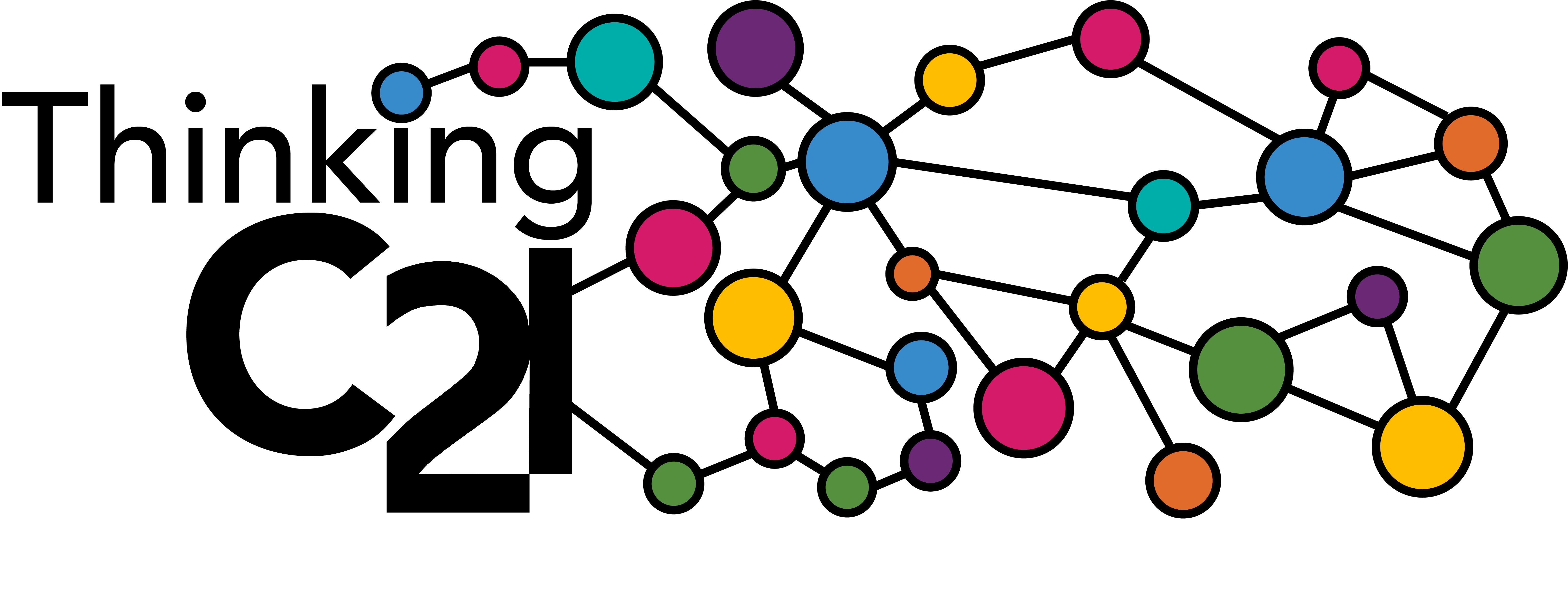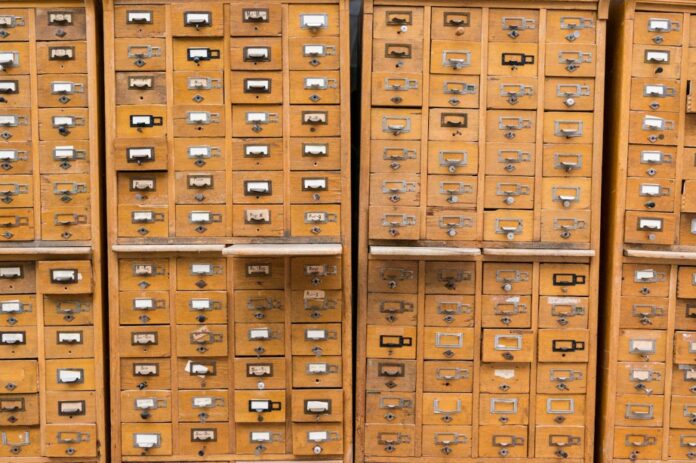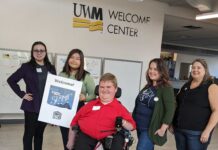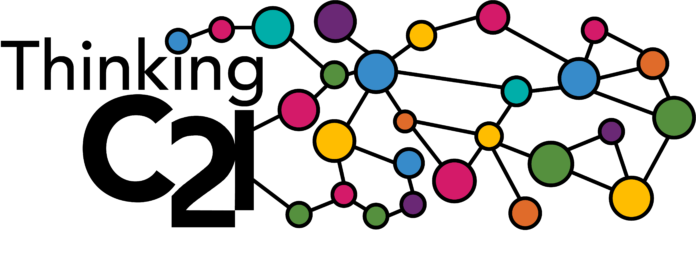By Eli Frank
I began this summer’s Archive Fellowship ruminating on the historical intimacies between C21’s institutional history and my own research project. Both C21 and the subject of my research—the resurgence of the Communist Party in 1970s and 80 Milwaukee led by young, working-class people of color—have in common a shared heritage dating back to that pivotal year of 1968 and a shared investment in asking critical questions about our present in the interests of reimagined futures. Was it just historical coincidence, I wondered, or did the relationship between the two go deeper? Were any of the subjects of my research in attendance at the Center’s Paul Robeson Film Festival in 1970, 1978’s “Marxist Theory Now” discussion, Said’s 1982 talk, or Stuart Hall’s seminar in 1984? And, in the heady days of the 1970s and 80s, to what extent were C21 and the subjects of my research co-producers of a shared discourse? I didn’t find conclusive answers to these questions, but it is precisely this sense of possibility and discovery which animated my engagement with the C21 archive—and which makes the archive a crucial space in our collective journey to becoming Lonely No More!
Six weeks ago, the C21 archive was a lonely archive, scattered across file cabinets on the ninth floor of Curtin Hall, estranged from its counterpart at UWM Archives, and unused, inaccessible, and undiscoverable to the UWM community and a wider community of researchers. If the Center’s archive-of-old was an example of lonely infrastructure, siloed off from its potential community of researchers, how might it be remade into a key node of our new, un-lonely infrastructure? An initial assessment of the Center’s archive and our capabilities to meet preservation and research needs in-house led to the conclusion that the archive—and its potential community of researchers—could be served best by repositories elsewhere at UWM. Six active weeks of weeding, arranging, describing, and boxing files culminated in the transfer of most the Center’s archival materials (with the star of the show, our event flyers from the Center’s earliest days through to the present, coming soon!), to UWM Archives and Special Collections.
Our Lonely No More! programming has spoken to the critical role of libraries in unmaking loneliness. I posit that the same holds true for archives, as spaces of discovery, serendipity, and community (even in solitude). How might the refreshed C21 archive work to unmake loneliness in the present? The Center’s archive holds the history of more than a half century of vibrant and critical thought on the key questions of our present and future, a vital lifeline for us here in the unsettled now. That critical ethos can be a beginning point to interrogate which systems and constituencies have a vested interest in creating and maintaining our collective loneliness—and which might be harnessed to unmake that loneliness.
What power, too, does the archive hold in the fight against loneliness as a space to commune with scholars both living and dead? For myself, working in the C21 archive brought me closer to intellectual heroes: perusing files from Michelle Caswell’s time at the Center, I engaged in private soliloquies with Caswell about key questions of archival practice. Recalling Julius Scott’s 2005 visit to the Center, I pondered what it might mean for students to come to understand how their professors connect with C21 as an incubator of indispensable humanist thought, and the new modes of belonging and intimacy that might be opened when students come to see themselves in real conversation with the intellectual giants who have passed through the Center on our campus. With the refresh of the Center’s archive and its transfer to UWM Archives and Special Collections, we hope a wider community finds the C21 archive a welcoming space for those with clear research questions and passing curiosities alike, with the archive as an unbounded space of discovery and intellectual indulgence. By linking C21, UWM Archives, UWM Special Collections, the Mathis Gallery, and others in a web of connectivity, we have, in turn, attempted to work against the institutional silo-ing—or institutional loneliness—that Erica Phillips meditates on in her upcoming post for Thinking C21.
So, to the UWM community and the intellectually curious, we invite you to visit the Center’s collection at UWM Archives and immerse yourself in decades of pathbreaking scholarship in our holdings of Discourse at UWM Special Collections (or online!). We invite you, too, to experiment with how the C21 archive might be integrated into the classroom—and as a touchstone or jumping off point for student and faculty research—to forge new sites of connectivity, community, and belonging: how can the C21 archive make you Lonely No More?
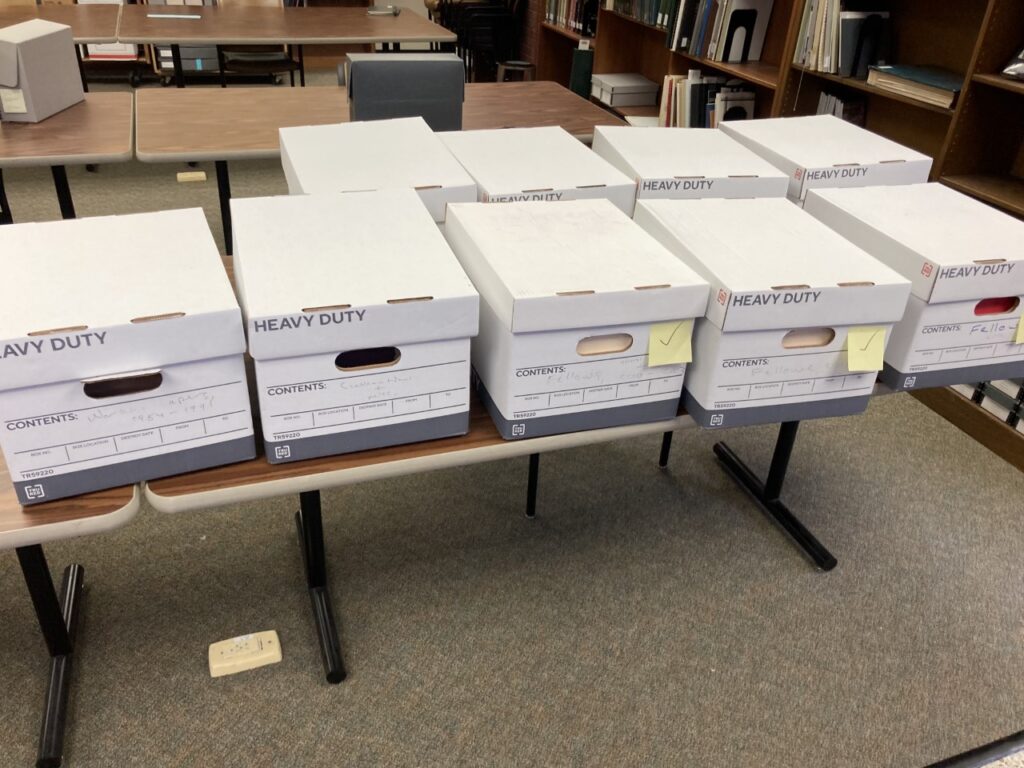
Eli Frank is a master’s student in History and Library and Information Science at the University of Wisconsin-Milwaukee. His research focuses on the Communist Party in 1970s and 80s Milwaukee.
